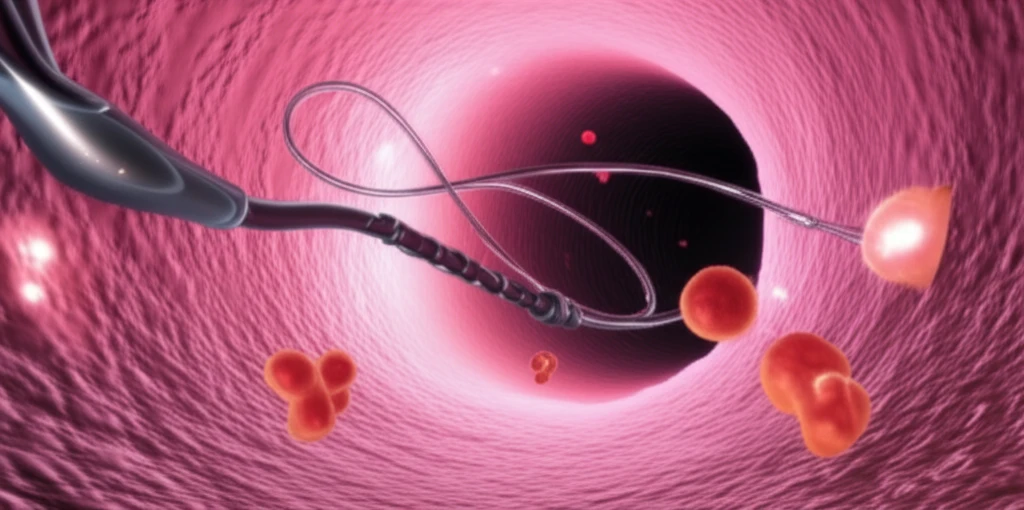
Early Detection: Your Best Defense Against Colon Cancer
"Discover how colonoscopy and advanced imaging are revolutionizing early-stage colon cancer treatment, offering hope and better outcomes."
Colon cancer remains a significant health concern, but advancements in screening and treatment are changing the landscape. Colonoscopy, in particular, has emerged as a powerful tool in preventing and detecting early-stage colon cancer, thanks to its ability to identify and remove precancerous polyps.
The effectiveness of colonoscopy in reducing colon cancer risk has led to increased emphasis on surveillance programs. These programs not only help in the initial detection of malignant polyps but also play a vital role in identifying and removing asymptomatic, high-risk adenomas and new, early-stage metachronous cancers.
Early-stage colon cancer is defined as cancer that has been completely removed, with no evidence of spread to nearby organs, lymph nodes, or distant sites. Regular check-ups and advanced detection methods are crucial for those at high risk, as well as for anyone with a history of colon polyps or cancer.
How Early Detection is Changing Colon Cancer Outcomes

Traditionally, cancer staging—determining the extent of the disease—occurred after surgical removal of the tumor. Now, in some instances, staging can happen after an endoscopic resection, particularly if the malignant polyp has minimal invasion. This approach emphasizes the importance of advanced imaging techniques.
- Colonoscopy: Remains a cornerstone of early detection, allowing for polyp removal and direct visualization of the colon.
- Fecal Immunochemical Testing (FIT): While useful, it has limitations in detecting early-stage cancers, highlighting the need for more sensitive methods.
- Computed Tomography (CT): Shows low sensitivity in diagnosing early T1 or T2 cancers, emphasizing the importance of other diagnostic tools.
- Magnification Chromoendoscopy and Endoscopic Ultrasound: These techniques offer improved accuracy in estimating the depth of invasion but are not yet standard practice.
- Confocal Endomicroscopy: A promising technology that allows for rapid differentiation of neoplastic from non-neoplastic colonic disease, potentially improving early diagnosis and treatment decisions.
Looking Ahead: Improving Colon Cancer Outcomes
Continued advancements in colonoscopy techniques, coupled with innovative imaging technologies, promise to further refine the detection and management of early-stage colon cancer. Pathological staging is also evolving, with increased recognition of risk factors for lymph node disease and the use of immunohistochemical methods for lymph node evaluation. These improvements offer hope for earlier diagnosis, more effective treatment, and improved outcomes for individuals at risk of colon cancer.
